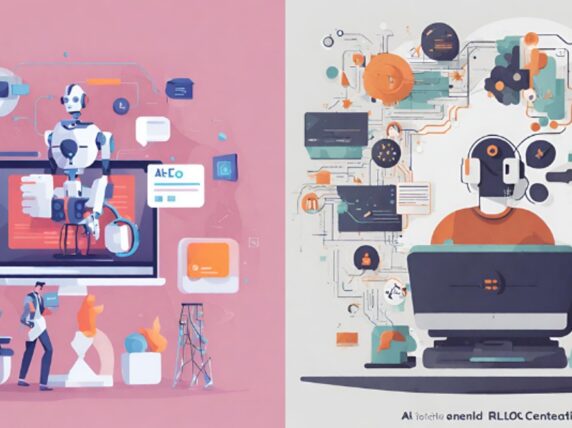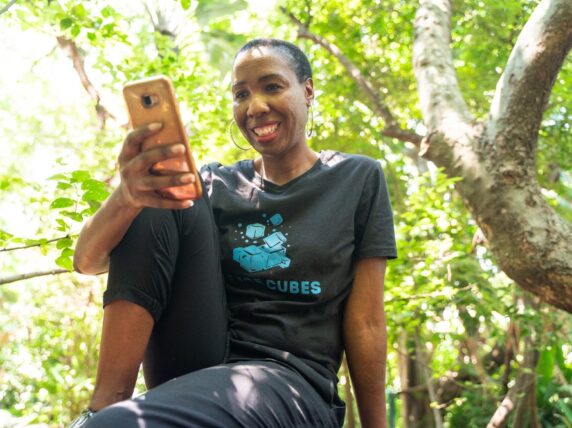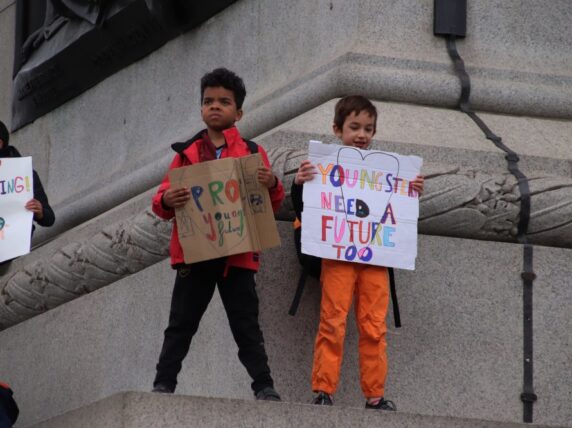How does a small charity have a big impact?
Everyone in the INGO sector knows that small and medium-sized charities are being squeezed.
There’s no denying the economies of scale which can support the kind of data collection and outcomes reporting that funders want.
As an organisation we know that we’re good at what we do, from the impact we’ve had on poverty, nutrition and sustainable farming in eastern and southern Africa. By NCVO standards we count as medium-sized: an annual income of £6.65m, working in six countries in eastern and southern Africa, nearly 200 staff in Africa supported by another 46 staffers in the UK and US. We’re confident that we punch above our weight.
Food security over the life of our projects in Burundi increased from 15% to 76%, in Kenya from 6% to 98%. In Uganda, farming communities we were working with planted 195,000 trees in just one year. Daily household income in Ethiopia and Kenya increased by four to six times.
By 2020 we had worked with two million people. We’ve learnt from that experience over the past 32 years, we’ve adapted what we do, and we want to take that work and reach many more people. Here is how and why we developed our new strategy.
We’ve changed
Our founding story has been an inspiration to all the farmers and supporters we work with, and we’re proud of it. It shouldn’t come as a surprise to anyone that we don’t “send cows” anymore, it’s not environmentally sustainable, and the name that describes it is very UK donor-centred, in a way that doesn’t sit comfortably with us now.
Subscribe to our newsletter
Our weekly email newsletter, Network News, is an indispensable weekly digest of the latest updates on funding, jobs, resources, news and learning opportunities in the international development sector.
Get Network NewsThe cow isn’t gone completely, training and support for locally-sourced livestock is still a vital part of our integrated farm-systems work. (And we can demonstrate exactly how livestock can have a climate-positive effect within a well-managed African farm system.)
Our agriculture training is mostly focused on women farmers, because women bear the responsibility for providing family meals. But we quickly learned that our training was ineffective unless we began by challenging how work and decision-making is shared within households.
Gender and social inclusion training is now a fundamental part of our programmes, and that’s experience we’re keen to share by working on joint projects with other programme delivery agencies. But as with our work on enterprise development, it’s not an area of expertise that anyone expects to find in an organisation called Send a Cow.
We had to ask ourselves: are we doing enough?
In the face of the enormous triple challenges of the climate crisis, Covid and conflict, millions of families in the countries where we work were at risk of falling back into extreme poverty.
The strategic choice for us was the one that’s familiar to many organisations working in development: breadth versus depth.
Did we want to continue working intensively, having a profound, long-lasting impact on localised communities? Or do we want to ramp up, working more broadly, at a scale that will make a significant contribution to the United Nations Sustainable Development Goals in countries that are looking likely to miss their key 2030 targets?
Go large, or go home
We decided that bold ambition was the only option – and this year we’ve committed to the goal of reaching another 5 million people in rural east Africa by 2030.
That ambition is underpinned by an Africa Forward strategy that relocates our programme design and support to Africa – because this is the most ethical and effective way for us to be working in the 21st century. Our staff in the region, who have always managed the country programmes, are now driving Ripple Effect’s strategic direction.
And we aim to achieve our goal by building on the intensive, targeted training in farming skills, social inclusion and enterprise development that has been the key to our success, so that the effect of our work is sustained and multiplied beyond the project participants we work with directly, and for years after our projects are completed.
We’ll deliver much more of our work through collaborative partnerships
Currently 15% of our results are achieved by working through local partners. We’re aiming to increase our partnership work to 50% by 2030 because it’s a much more cost-effective model of delivery. And, even more importantly, it helps to ensure the long-term sustainability of our approach after projects come to an end, because skills are embedded locally.
That sounds like a ripple effect
Our work has profound effects within communities. Families who were just focused on providing the next meal learn the best new and traditional techniques for building productive, biodiverse farms that are adapted to climate change.
They grow more, and sell more, and are able to invest in their farms, and in their families’ futures. And the effect grows through the sharing mechanisms embedded in our projects such as self-help groups, savings groups, farmer training days, pass-on gifts of livestock, seeds and plants, peer farmer trainers and community volunteers. That’s why we’ve changed our name to Ripple Effect.
For every family we work with directly, we know that another three families benefit too. Those families then share what they learn with their neighbours and communities and soon hundreds, then thousands are thriving. That is the sort of impact that supporters and donors want to get behind.
And we’ll continue to produce the data that demonstrates our impact
These things are easy to say, but as an organisation we’ve made a strong commitment to data and outcome measurement over many years, at a time when other charities are struggling to measure progress.
Our Better Life Index tracks six broad indices of what change looks like, at a household and community level. Our recently appointed head of monitoring, evaluation and programme effectiveness, Catherine Mwangi, is absolutely passionate about data: “Data is always communicating,” she says, “and it is meant to be used for learning, decision-making and adaptation. It underpins our work at Ripple Effect and defines the public value of what we do.”
So the funders who support us can be confident that we will continue to live up to the ambition of our new name, and that the ripple effect which starts on an African farm will create a confident, thriving and sustainable rural Africa.
Find out about Ripple Effect’s plan for 2030, and learn more about the inspiration behind their name change.
Category
News & Views



